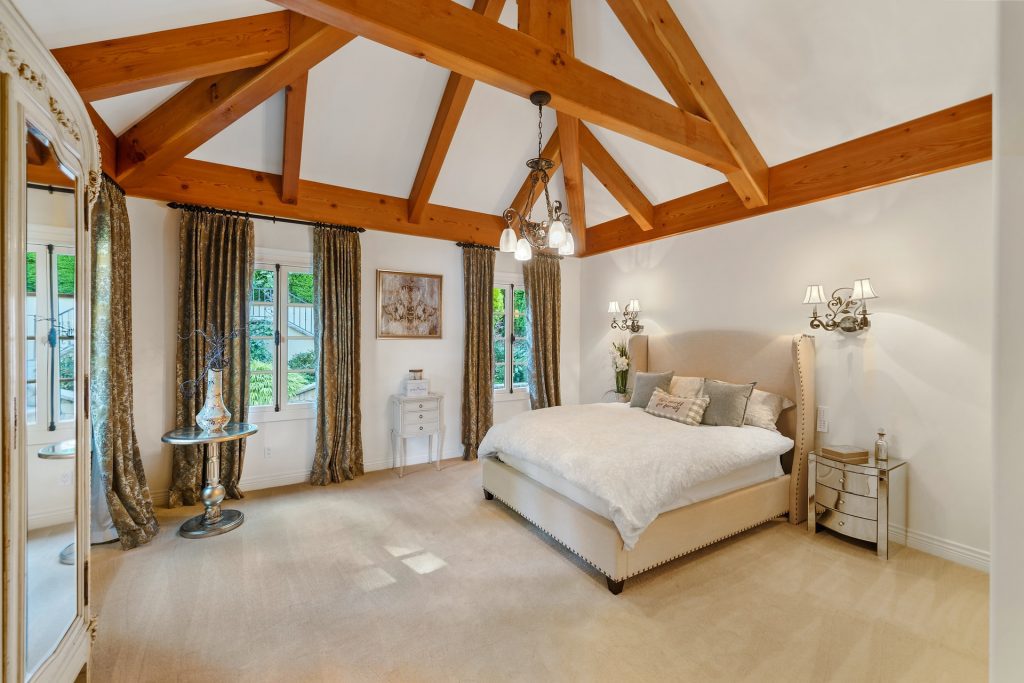Buyer demand in 2020 has shifted, and even more people are looking for larger homes. If the lockdown period left you feeling frustrated at having little space at home, there is a range of solutions to choose from.
Of course, you might not want to move. You might be settled where you are, your kids might be in a great school, and you may love local life. Or, you might not think you can afford to scale up in property size right now.
The great news is you don’t have to move home to live in a larger house. Loft conversions are an effective way of utilising unused space, creating more room and even adding value to your property.
How do you pay for a loft conversion?
You have several options at your disposal when it comes to paying for a loft conversion. Your budget and personal circumstances will likely affect what option is best for you, so it is best to consider all options fully.
Cash or upfront payment
If you have access to cash or money in an account, you might consider paying for the loft conversion in one lump sum payment.
Unsecured Loan
Loans are available for many reasons and depending on the borrower’s circumstances and credit score, the loan might be available at an affordable rate.
Unsecured personal loans are often made available for sums between £1,000 and £25,000. For many loft conversions, this sum might not be substantial enough to cover the cost of the loft conversion, requiring homeowners to take a secured loan option.
Secured Home improvement loan
With a home improvement loan, you can access a set amount of money to carry out home improvements. This is the nature of a loft conversion, but with the cost of loft conversion work, homeowners might find they are encouraged to use a secured loan option, also known as a second-charge mortgage, as opposed to taking out an unsecured loan.
Remortgage
As a property owner, there is a strong chance you hold a mortgage on your home. Many homeowners consider remortgaging for home improvements as a solution to generating cash for various purposes.

Is help available to pay for a loft conversion?
While there is help available for loft improvement work, this support relates more to loft insulation assistance, as opposed to funding for the actual loft conversion process.
Your local council might be able to provide you with a home improvement grant. Also, loft insulation is one of the options associated with the Green Deal, which can reduce the cost of insulating your loft. This will provide you with the chance to reduce the cost to you of improving your home.
The pros and cons of cash or upfront payment
The pros of cash payments when paying for a loft conversion include:
- This is the fastest way to pay and arrange work
- There is no paperwork to be carried out
- Your credit score or home will not be at risk with this payment
The cons of cash payments when paying for a loft conversion include:
- Not many people have access to this amount of money straight away
- Not every builder or building company will accept a cash payment of this magnitude
The pros and cons of an unsecured loan
The pros of a loan when paying for a loft conversion include:
- You can spread the cost of paying out over several years
- If your credit rating is appealing, you might find an affordable rate of interest
- Many lenders are willing to provide this style of loan
The cons of a loan when paying for a loft conversion include:
- An unsecured loan might not be sufficient for the cost of loft conversion
- Having to pay the loan back in a few years might lead to significant monthly payments
- You will be charged interest for borrowing the money
The pros and cons of a secured home improvement loan
The pros of a home improvement loan when paying for a loft conversion include:
- This style of loan is engineered to help people improve their property
- You can spread the cost of payments over many years
- If your credit rating is appealing, you might find an affordable rate of interest
- As the debt is secured you can borrow larger sums of money
The cons of a secured home improvement loan when paying for a loft conversion include:
- You will be charged interest and if you spread the repayments over a long term to keep the monthly payments low, you will pay back significantly more than you initially borrowed.
- As the debt is secured, if you fail to keep up with the repayments you will put your home at risk.
The pros and cons of Remortgaging
The pros of remortgaging when paying for a loft conversion include:
- The sums of money associated with a loft conversion project mean a remortgage could be a viable option
- The monthly cost of the loft conversion will be an affordable amount as you can spread the payments over a longer term.
- Many lenders are willing to allow you to raise money for home improvements such as a loft conversion.
The cons of remortgaging when paying for a loft conversion include:
- The cost of the work will be added to the cost of your mortgage and with interest, leads to a higher cost in the long term over the lifetime of the mortgage
- If you fail to keep up with repayments, you will be putting your home at risk.
- There may be fees payable, so you should get remortgage advice about the costs involved

Is it worth doing a loft conversion?
When it comes to determining if a loft conversion is worth it, you have a lot of factors to consider.
If you are happy with the conversion work, and it improves your enjoyment of your home, most households will consider it to be a worthwhile project.
However, if you are looking to justify the work in terms of property value, you need to ensure you spend less than the increase in value you enjoy at your home.
A study by Nationwide suggests a loft conversion, which adds a bathroom and en-suite facility to the property, adds 21% to the value of the property. In London, according to a study carried out by Abbey Lofts, the increase in value owing to a loft conversion is 24.5%. The Homeowners Association have also cited a positive impact of around 20% when you convert unused loft space at home.
With the average sold price of a property in the UK reaching £250,000 by the end of 2020, 21% of this figure is £52,500.
A study shared by the Household Quotes site suggests a typical loft conversion costs between £21,000 and £44,000, although a modification in a larger home can cost as much as £63,000.
Taking the average figures as a basis, there appears to be an argument for converting your loft to enjoy a positive outcome when comparing property value with money spent.
How much does it cost to turn a loft into a room?
If you are looking for the most affordable way to convert a loft space into a liveable space, it usually involves a Velux window solution. This method consists of the installation of one or two windows onto the roof, thus ensuring there is sufficient light flooding into the room.
The Velux method of loft conversion costs between £21,000 and £41,000.
The most common form of loft conversion in the United Kingdom is a Dormer conversion. This style of conversion is used when there is a small flat-roofed extension which has a window installed. You will usually find two of these installed at a property, creating a sense of symmetry.
However, there are L-shaped Formers and side Dormers, so there is a range of flexible solutions, which is helpful if you have a slightly unique home. In some cases, Dormer extensions have been known to add up to four rooms in a property.
The Dormer method of loft conversion costs between £31,000 and £58,000 but more intricate extensions can cost between £40,000 and £60,000.
A Hip to Gable loft conversion occurs when one, or both, of the sloping parts of the roof, are replaced with a gable wall.
The Hip To Gable loft conversion costs between £42,000 and £65,000.
The most expensive form of loft conversion seen in the United Kingdom is the Mansard conversion. With this style of transformation, one whole side of the roof is replaced, resulting in a straight wall and flat roof.
This represents significant work and will often involve planning permission. The cost of a Mansard conversion ranges from £45,000 to £75,000.
As you will see, the standard costs associated with loft conversion work means that paying upfront is likely to be beyond the majority of UK homeowners. Therefore, finding a financial solution to spread the cost of the loft conversion over a more extended period makes sense.

How much does it cost to insulate a loft conversion?
In figures provided by the Department for Energy and Climate Change, as of the end of 2019, there are 28.4 million properties in Great Britain, and 24.5 million of these properties have loft space. However, only 16.2 million of these properties have insulated loft space.
At that rate, 34% of homeowners with a loft space could see significant saving benefits by installing insulation.
Therefore, anyone converting their loft space is advised to add or improve the insulation in this space.
In a terraced property, the average cost of loft insulation works out at £285 but provides an average annual saving of £120 in reduced heating bills. In less than three years, the cost of loft insulation will be more than covered by reduced energy bills.
For a semi-detached property, the average cost of loft insulation works out at £300. The annual energy bill saving is said to be £135. In just over three years, the cost of insulation will be accounted for in reduced energy bills.
The average cost of loft insulation for detached properties is £395. The annual energy bill saving is stated as £225. This means the cost of insulating a loft in a detached property can be accounted for in less than two years.
The cost of insulating a loft when converting a loft shouldn’t be beyond the reach of most homeowners. Therefore, there is less of a pressing need to find a financial solution for this; many households will have the budget that allows this to be paid upfront. With a quick turnaround in energy bill savings, this is a justifiable expense.
Of course, if the builder carrying out the loft conversion work also provides insulation services, for convenience, you might choose to add this cost to the overall cost of the loft conversion.
Is a loft conversion cheaper than extension work?
There is no single answer as to whether a loft conversion is cheaper than an extension. Each property presents unique challenges and opportunities; however, loft conversions are generally the most cost-effective way to add more space to your property.
If budgetary concerns are your primary issue, you should review your loft conversion options first.
Of course, you should also consider the size of your garden, and whether you want to use up this space to create more room at home. You will also find wiring and heating costs more when you extend your property, so that is another factor.
Both solutions are viable, but your home and budget might make one option more sensible than the other. You should arrange an appointment with a specialist builder who can advise you on what is best for you.

Conclusion
With the improvements in property value associated with loft conversions and the increased space, which is becoming vital in maintaining a happy home life, it is easy to see why loft conversions are hugely popular.
The cost of loft conversions, even at the more affordable end of the market, requires most homeowners to seek additional assistance. The best finance solution for you depends on your circumstances and a range of external factors.
There is a range of finance solutions on offer, which allow homeowners to improve their homes. Anyone looking for guidance on how to make changes that add space, value and utility, affordability and justification, should speak with a financing expert.
How to explore your Secured Loan and Remortgage Options?
At The Money Hub, we appreciate the benefits of loft conversion work, and why so many homeowners are keen to carry out this work at home. We also understand the cost of loft conversion requires many households to seek a financial solution.
To discuss this you can call The Money Hub Limited on 0203 725 5830 and speak to one of our highly specialised and dedicated Mortgage Advisors or you can complete an enquiry form which will allow you to schedule a call time.
DISCLAIMER: These articles are for information only and should not be construed as advice. You should always seek advice prior to taking any action.
Information Sources:
Government Green Deal: https://www.gov.uk/green-deal-energy-saving-measures
Nationwide study on the value of loft conversion: https://www.onthemarket.com/content/much-value-loft-conversion-add-property/
Abbey Lofts Conversion Value: https://abbeylofts.net/blog/how-much-value-does-a-loft-conversion-add-to-a-property/
Homeowners Alliance value: https://hoa.org.uk/advice/guides-for-homeowners/i-am-improving/loft-conversion-where-do-i-start/
Average sold price of UK property: https://www.theguardian.com/business/2020/nov/06/uk-house-prices-jump-as-average-home-tops-250000-for-first-time-covid
Household Quotes Cost: https://householdquotes.co.uk/loft-conversion-cost/
Department for Energy and Climate Change figures: https://www.moneysupermarket.com/gas-and-electricity/loft-insulation/
